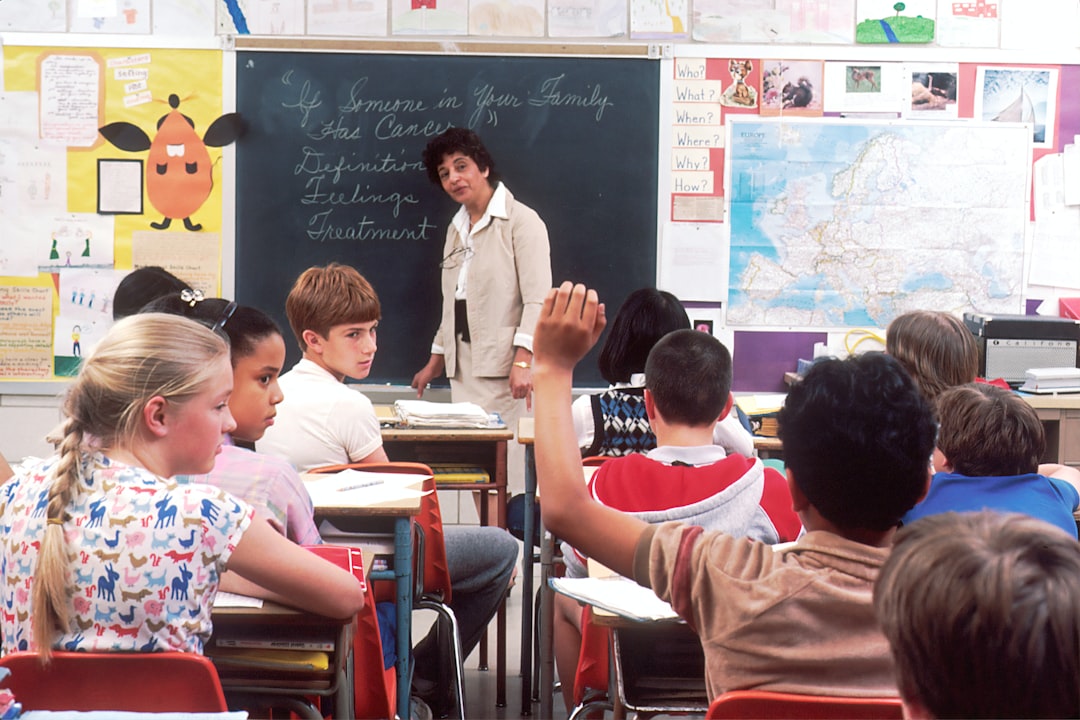Social and behavioral sciences encompass a broad range of disciplines that study human behavior, social structures, and the interactions between individuals and their environments. This field includes psychology, sociology, anthropology, political science, and economics, among others. Each of these disciplines offers unique insights into the complexities of human behavior and societal dynamics.
By examining how individuals think, feel, and act within various contexts, social and behavioral sciences provide a framework for understanding the underlying factors that shape human experiences. The significance of social and behavioral sciences lies in their ability to inform policy-making, enhance community well-being, and foster a deeper understanding of cultural diversity. As societies become increasingly interconnected, the need for comprehensive knowledge about human behavior and social systems becomes paramount.
This field not only addresses individual and collective challenges but also promotes social justice and equity by highlighting the importance of diverse perspectives in shaping societal norms and values.
Key Takeaways
- Social and behavioral sciences encompass the study of human behavior, society, and culture.
- Courses in social and behavioral sciences are important for understanding human interactions and societal dynamics.
- Popular courses in this field include psychology, sociology, anthropology, and political science.
- Career opportunities in social and behavioral sciences include social work, counseling, market research, and public policy analysis.
- Interdisciplinary approach in social and behavioral sciences courses allows for a holistic understanding of human behavior and society.
The Importance of Social and Behavioral Sciences Courses
Courses in social and behavioral sciences are essential for equipping students with critical thinking skills and a nuanced understanding of human behavior. These courses encourage students to analyze complex social issues through various lenses, fostering an appreciation for the multifaceted nature of human interactions. By engaging with theories and methodologies from different disciplines, students learn to approach problems holistically, considering psychological, cultural, economic, and political factors.
Moreover, social and behavioral sciences courses cultivate essential skills such as communication, empathy, and analytical reasoning. These competencies are invaluable in both personal and professional contexts. For instance, understanding group dynamics can enhance teamwork in corporate settings, while knowledge of cultural differences can improve interpersonal relationships in diverse communities.
As globalization continues to shape our world, the insights gained from these courses become increasingly relevant in navigating cross-cultural interactions and addressing global challenges.
Popular Social and Behavioral Sciences Courses

Among the myriad of courses available within the social and behavioral sciences, certain subjects have gained particular popularity due to their relevance to contemporary issues. Psychology courses often attract students interested in understanding mental processes and behaviors. Topics such as cognitive psychology, developmental psychology, and abnormal psychology provide foundational knowledge that is applicable in various fields, including healthcare, education, and counseling.
Sociology is another widely pursued discipline that examines social structures, institutions, and relationships. Courses in sociology often cover topics such as social inequality, family dynamics, and urban studies. These subjects resonate with students who seek to understand the complexities of societal issues like poverty, crime, and discrimination.
Additionally, courses in anthropology offer insights into cultural practices and human evolution, appealing to those interested in exploring the diversity of human experiences across time and space.
Career Opportunities in Social and Behavioral Sciences
| Metrics | Statistics |
|---|---|
| Job Growth | 11% (faster than average) |
| Median Salary | 79,200 per year |
| Employment Opportunities | Expected to increase |
| Job Satisfaction | High |
The career landscape for graduates of social and behavioral sciences is diverse and dynamic. Many students find fulfilling careers in fields such as social work, counseling, education, public policy, and research. Social workers play a crucial role in supporting individuals and families facing challenges related to mental health, substance abuse, or economic hardship.
Their training in understanding human behavior equips them to develop effective intervention strategies that promote well-being. In addition to direct service roles, graduates can pursue careers in research or academia. Research positions often involve conducting studies that inform public policy or contribute to theoretical advancements within the field.
For instance, behavioral scientists may work with governmental agencies or non-profit organizations to evaluate the effectiveness of social programs aimed at reducing homelessness or improving mental health services. Furthermore, teaching positions at colleges and universities allow graduates to share their knowledge while inspiring the next generation of social scientists.
Interdisciplinary Approach in Social and Behavioral Sciences Courses
One of the defining features of social and behavioral sciences is their interdisciplinary nature. Many courses draw upon theories and methodologies from multiple disciplines to provide a comprehensive understanding of complex issues. For example, a course on health disparities may integrate perspectives from sociology, psychology, and public health to explore how social determinants affect health outcomes across different populations.
This interdisciplinary approach not only enriches the learning experience but also prepares students for real-world challenges that require collaboration across fields. In practice, professionals often encounter problems that cannot be solved through a single disciplinary lens. For instance, addressing climate change necessitates insights from environmental science, economics, sociology, and political science.
By fostering an interdisciplinary mindset, social and behavioral sciences courses equip students with the tools needed to tackle multifaceted issues effectively.
Research and Methodology in Social and Behavioral Sciences Courses

Research methodologies are a cornerstone of social and behavioral sciences education. Students are introduced to various qualitative and quantitative research methods that enable them to gather data, analyze findings, and draw meaningful conclusions about human behavior and societal trends. Courses often cover topics such as survey design, ethnographic research, statistical analysis, and experimental methods.
Understanding research methodologies is crucial for students who aspire to contribute to evidence-based practices in their future careers. For example, a student studying psychology may learn how to design experiments that test hypotheses about cognitive processes or emotional responses. Similarly, sociology students might engage in fieldwork to observe community dynamics or conduct interviews that reveal insights into social issues.
Mastery of these methodologies not only enhances academic rigor but also empowers students to critically evaluate existing research and apply findings to real-world situations.
Impact of Social and Behavioral Sciences on Society
The impact of social and behavioral sciences on society is profound and far-reaching. Research findings from these disciplines inform public policy decisions that affect millions of lives. For instance, studies on the effects of poverty on child development have led to initiatives aimed at improving access to education and healthcare for disadvantaged populations.
Similarly, insights from psychology have shaped mental health policies that prioritize early intervention and community-based support systems. Moreover, social and behavioral sciences play a vital role in promoting social change by raising awareness about pressing issues such as discrimination, inequality, and environmental sustainability. Activists often rely on research findings to advocate for policy reforms or community initiatives that address systemic injustices.
By providing empirical evidence that highlights the need for change, social scientists contribute to movements aimed at creating a more equitable society.
Future Trends in Social and Behavioral Sciences Education
As society continues to evolve rapidly due to technological advancements and global challenges, the field of social and behavioral sciences is poised for significant transformation. One emerging trend is the integration of technology into education and research methodologies. Online learning platforms are becoming increasingly popular for delivering courses in social sciences, allowing greater accessibility for students worldwide.
Another trend is the growing emphasis on experiential learning opportunities within social and behavioral sciences programs. Internships, community engagement projects, and collaborative research initiatives are becoming integral components of curricula.
Furthermore, there is an increasing recognition of the importance of diversity within social sciences education. Programs are evolving to include more diverse perspectives that reflect the experiences of marginalized communities.
This shift not only enriches academic discourse but also ensures that future practitioners are equipped to address the needs of diverse populations effectively. In summary, the landscape of social and behavioral sciences education is dynamic and responsive to societal changes. As new challenges emerge globally—ranging from mental health crises to climate change—the relevance of this field will continue to grow.
The integration of technology, experiential learning opportunities, and a commitment to diversity will shape the future trajectory of social and behavioral sciences courses, ultimately enhancing their impact on society as a whole.
In social and behavioral sciences courses, students often explore various concepts and institutions that shape societies. One related article that delves into the complexities of political philosophy and democracy can be found here. This article discusses the fundamental principles of democracy and how they influence political systems around the world. Understanding these concepts is crucial for students studying social sciences as they analyze the impact of political ideologies on society.
FAQs
What are social and behavioral sciences courses?
Social and behavioral sciences courses are academic programs that focus on the study of human behavior, society, and culture. These courses cover a wide range of topics including psychology, sociology, anthropology, political science, and economics.
What can I learn from social and behavioral sciences courses?
By taking social and behavioral sciences courses, students can gain a deeper understanding of human behavior, social interactions, cultural diversity, and the impact of social and political structures on individuals and communities. These courses also provide valuable critical thinking and analytical skills.
What are some common social and behavioral sciences courses?
Common social and behavioral sciences courses include Introduction to Psychology, Sociology of Gender, Cultural Anthropology, Political Science, Economics, Social Psychology, and Research Methods in the Social Sciences.
What career paths can social and behavioral sciences courses lead to?
Social and behavioral sciences courses can lead to a variety of career paths in fields such as social work, counseling, human resources, market research, public policy, education, and community development. These courses also provide a strong foundation for further studies in graduate programs.
Why are social and behavioral sciences courses important?
Social and behavioral sciences courses are important because they help individuals understand the complexities of human behavior and society. They also provide valuable insights into addressing social issues, promoting diversity and inclusion, and creating positive social change.
























+ There are no comments
Add yours